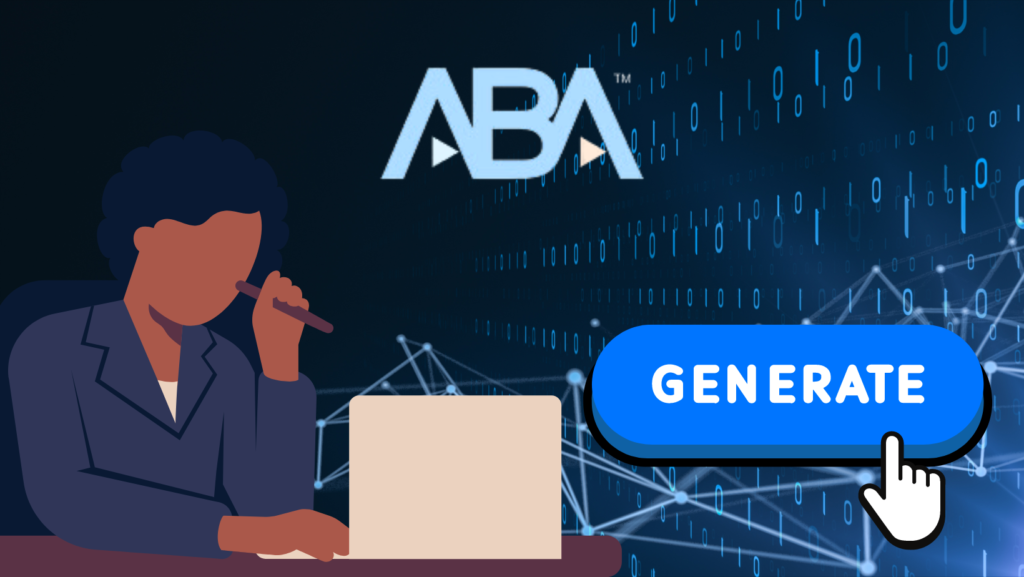On July 29, 2024, the American Bar Association (ABA) issued Formal Opinion 512, addressing the use of generative artificial intelligence (GAI) in legal practice. It emphasizes that lawyers must adhere to ethical obligations regarding competency, informed consent, confidentiality, and reasonable fees. The ABA highlights the need for lawyers to stay vigilant in upholding these ethical standards while integrating new technologies into their practice.
The American Bar Association (ABA) Standing Committee on Ethics and Professional Responsibility released its first formal opinion on the use of generative artificial intelligence (GAI) in legal practice known as the Formal Opinion 512, which provides comprehensive ethics guidance on the use of Generative Artificial Intelligence (GAI) tools in legal practice. This opinion addresses various ethical considerations for lawyers when integrating GAI into their workflows, emphasizing the need to align such practices with the fundamental professional responsibilities of lawyers, including competence, confidentiality, communication, candor toward courts, and supervisory duties.
It stresses that lawyers and law firms using GAI must “fully consider their applicable ethical obligations,” including duties to provide competent legal representation, protect client information, communicate with clients, and charge reasonable fees based on time spent using GAI. The opinion highlights some ethical issues with GAI tools and gives general advice for lawyers navigating this new technology. The 15-page opinion outlines that lawyers should be aware of several model rules in the ABA Model Rules of Professional Conduct, such as:
Model Rule 1.1 (Competence): Lawyers must provide skilled and thorough representation by having sufficient knowledge of the benefits and risks associated with the technologies used. This means having the necessary legal knowledge and being well-prepared. They also need to understand the benefits and risks of using new technologies, like AI, in their work. Lawyers should also not rely solely on AI-generated outputs without appropriate independent verification or review, tailored to the tool and task.
Model Rule 1.6 (Confidentiality of Information): Lawyers must keep all client information confidential when using GAI tools evaluating risks of disclosure, and ensuring proper safeguards regardless of how it was obtained unless the client agrees to share it. Informed client consent may be necessary in certain cases, particularly with self-learning AI tools. This rule also applies to former and potential clients.
Model Rule 1.4 (Communications): Lawyers have to communicate effectively with their clients. This includes promptly sharing important information. When using AI, lawyers must discuss with clients how AI will be used to achieve their goals.
Model Rule 1.5 (Fees): Lawyers must ensure that fees are reasonable and reflect actual time spent using GAI tools. If a lawyer uses AI to draft documents, they can charge for the time spent inputting information and reviewing the AI’s output, but not for the time spent learning or gaining competence to use the AI tool, unless explicitly requested.
Model Rules 5.1 and 5.3 (Supervisory Responsibilities): Lawyers with managerial and supervisory roles must ensure compliance with professional conduct rules when using GAI, including establishing policies, providing training, and monitoring adherence.
Ethical Guidelines and Responsibilities
Lawyers integrating Generative AI (GAI) tools into their practice must thoroughly understand the capabilities and limitations of GAI Tools. This comprehension is crucial to ensuring that their use of GAI does not compromise the quality of their legal services. Ethical responsibilities extend to using GAI in litigation, where accuracy is paramount to avoid misleading representations. Before inputting client-related information into a GAI tool, lawyers must evaluate the risks of data disclosure to maintain confidentiality, as mandated by Model Rule 1.6. Furthermore, the American Bar Association (ABA) highlights the risk of “hallucinations” or inaccurate outputs from GAI, making it essential for lawyers to verify any information generated by these tools independently.
Given the rapid evolution of GAI technology, the ABA advises lawyers to stay informed about the latest updates and guidance on professional conduct. The need for meticulous review and accuracy remains critical, as unintentional misstatements can lead to professional misconduct. As GAI tools develop, the ABA and state bar associations are expected to provide ongoing updates to ensure the ethical and competent use of these technologies. This proactive approach helps legal professionals navigate the complexities and opportunities presented by GAI, ensuring they uphold their duty to provide competent, confidential, and accurate legal services.
Impact and Future Considerations
The ABA’s new guidance indicates an important shift in the legal profession’s perspective on generative AI. It suggests that while lawyers are not mandated to use GAI, understanding and potentially utilizing these tools is becoming increasingly important for maintaining competent legal practice. This aligns with the broader trend of incorporating advanced technologies into standard legal workflows, similar to the adoption of email, computerized legal research, and eDiscovery.
Conclusion
The ABA’s Formal Opinion 512 is an important step in guiding the legal profession through the ethical use of generative AI. By providing clear and balanced guidelines, the ABA encourages lawyers to responsibly integrate AI tools into their practice, enhancing efficiency and quality while upholding the highest standards of professional conduct. As technology continues to evolve, ongoing vigilance and adherence to ethical responsibilities will be crucial in navigating the intersection of law and AI.
References
- https://www.linkedin.com/posts/marc-rotenberg_aba-formal-opinion-512-july-2024-activity-7224440252264767490-RKDe/?utm_source=share&utm_medium=member_android
- https://www.forbes.com/sites/lanceeliot/2024/07/31/american-bar-association-lowers-the-boom-and-lays-down-the-law-on-lawyers-proper-use-of-generative-ai/
- https://www.dazzagreenwood.com/p/abas-landmark-opinion-on-generative
- https://www.lawnext.com/2024/07/in-first-ethics-ruling-on-gen-ai-aba-says-lawyers-must-have-reasonable-understanding-of-the-technology-but-need-not-become-experts.html
- https://www.abajournal.com/web/article/take-heed-before-using-ai-according-to-new-opinion
- https://www.americanbar.org/content/dam/aba/administrative/professional_responsibility/ethics-opinions/aba-formal-opinion-512.pdf
- https://www.americanbar.org/news/abanews/aba-news-archives/2024/07/aba-issues-first-ethics-guidance-ai-tools/

